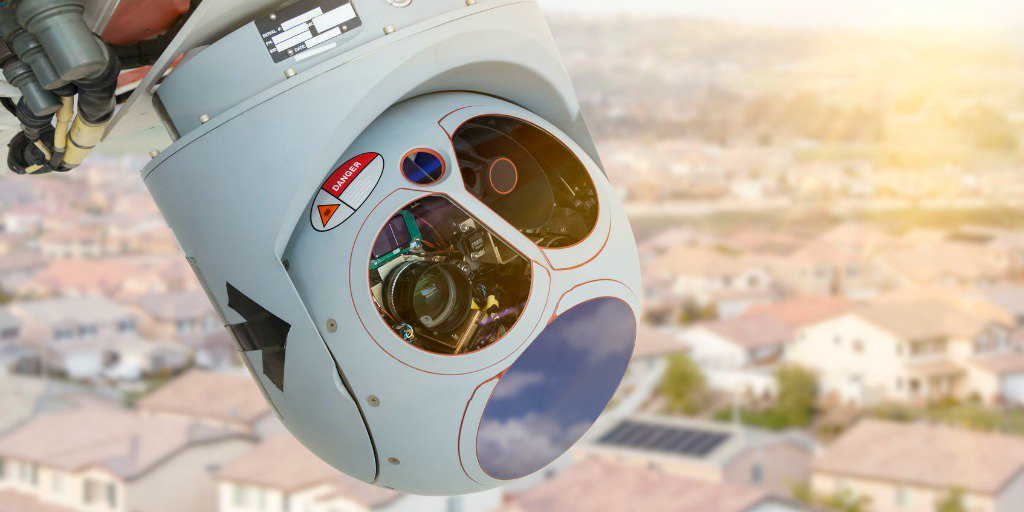Drones stepped onto the real estate scene almost as soon as they hit the commercial market. Drone footage gives an online posting a professional, high-end touch and allows the buyer to have a better understanding of the layout of the property.
- Buyers can see a full and unobstructed view of the roof, an area of concern to many buyers when evaluating a home purchase.
- Drone footage also allows buyers to get an idea of what the neighborhood looks like if they can’t drive in the area themselves.
The sky, as it were, seems to be the limit when it comes to what type of property listing can benefit from drone footage. Lots and land, commercial, private, urban, suburban—any and all sale postings show benefits from the addition of drone footage, whether still photographs or video.
Drone footage use is picking up in the real estate market. How can you incorporate it into your own sales safely, legally and lucratively?
Everything you need to know if you plan to use drones yourself
Start with the law
Know your federal, state and local laws regarding drone use. The FAA refers to drones as Unmanned Aircrafts Systems (UAS). The FAA has completed their regulatory framework that incorporates airspace safety, personal security and privacy, and national security. As of August 2016, all drones over .55 lbs must be registered with the U.S. Government. For more information, visit the FAA website drone regulations and rules for drone model aircraft pages.
Get educated
You will also need to know the basics surrounding the classifications of drone aircrafts. The classification of drone footage in real estate is commercial. This means that you will need to acquire a permit before your first flight. However, if you intend on using your drone in a variety of areas for a variety of purposes (say you use it for work during the week but want to take it to the beach with the family on the weekends), the rules for operating your drone will change.
Privacy regulations, airport locations, TSA screenings for drone pilots, hours of operation, and altitude limitations need to be considered before your fly. The FAA website and Know Before You Fly contain all of this information and more and are must reads before you consider buying and/or flying a drone. The Know Before You Fly site also includes a link to the U.S. Airspace Map that provides information on which classification of drones can be flown and where in relation to local airports. Rules and regulations change with each airport, meaning that you will need to check this website each time you fly your drone.
Because of these regulations, not all areas allow for drone flight. A waiver can be applied for to allow for real estate footage of a property, but the turnaround time on such a waiver can be 60 to 90 days. Flying a drone in forbidden airspace can result in thousands of dollars of fines.
Once you understand the laws and rules involved with owning and using a drone, you can start to think about the drone itself. If you can, borrow a drone and talk to a fellow real estate agent who uses this technology before buying your own to ensure that using a drone is something you want to invest in.
Get trained
Utilize classes online or those available in person. Drones can be hard to fly. Most classes are offered through drone clubs or drone retailers. Make sure that whichever course you choose includes training on how to read FAA maps governing where it is and is not legal to fly. Gold Seal is an online training school where you can get your drone pilots license. Unmanned Safety Institute also provides online and in person classes.
Take off
Once you have educated yourself, you are ready to buy and fly your drone. The benefits of this are that you will own the images, have 100% access and use to all of the footage, and you can get this footage on your own schedule. The downside, of course, is that taking and using drone footage takes a little practice, which means an investment of time as well as money.
If you prefer to keep your feet on the ground…
Outsource it
If you would like to skip the time, effort, money, and risk required to learn how to use a drone and the footage, there are services available that will take care of it for you. The benefits are numerous. Not only are they professionals who already have the permits and a full understanding of the laws governing drone usage, they also have an eye for the job. The resulting images will likely have a higher quality than a novice drone user. And if something happens at the property, it falls on their insurance, not yours. There are professionals out there who are willing and able to do it for you. A simple online search of drone operators in your area will get you started.
Have you used drones in your real estate sales? What has been your experience? Tell us in the comments below!
Read more on our ClaimPrevent® Summary: Real Estate Licensee Responsibilities When Creating New Listings
